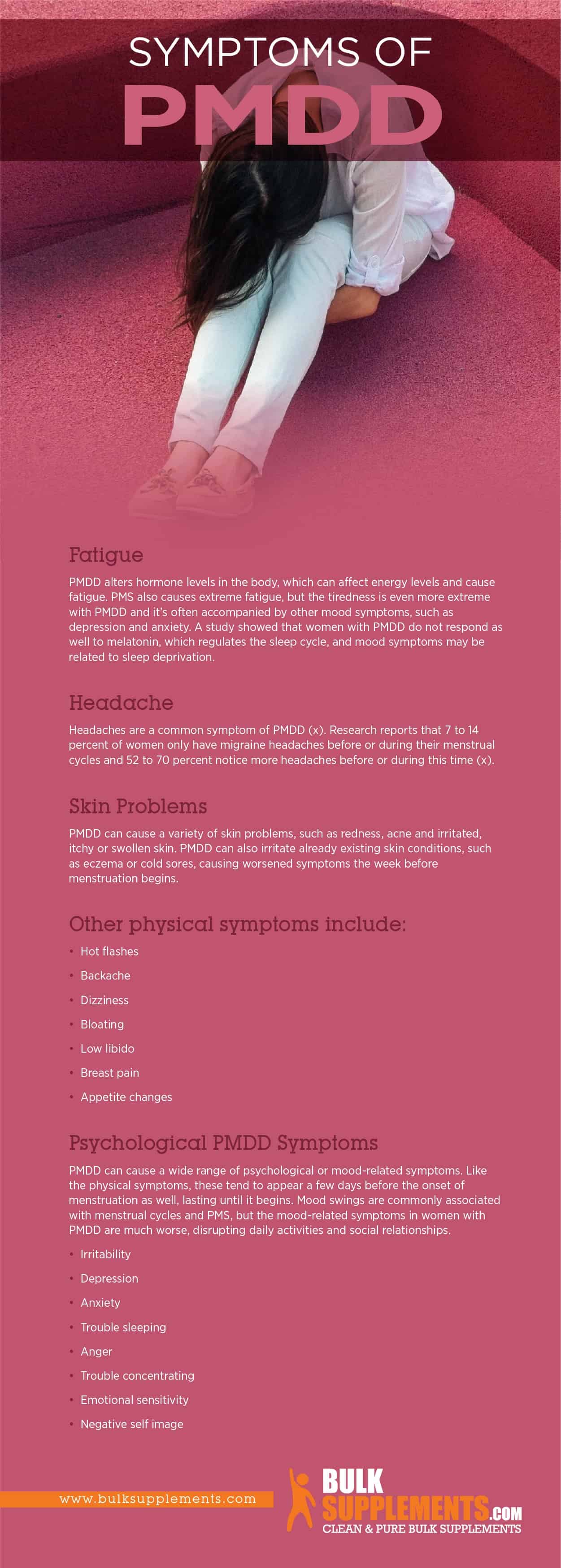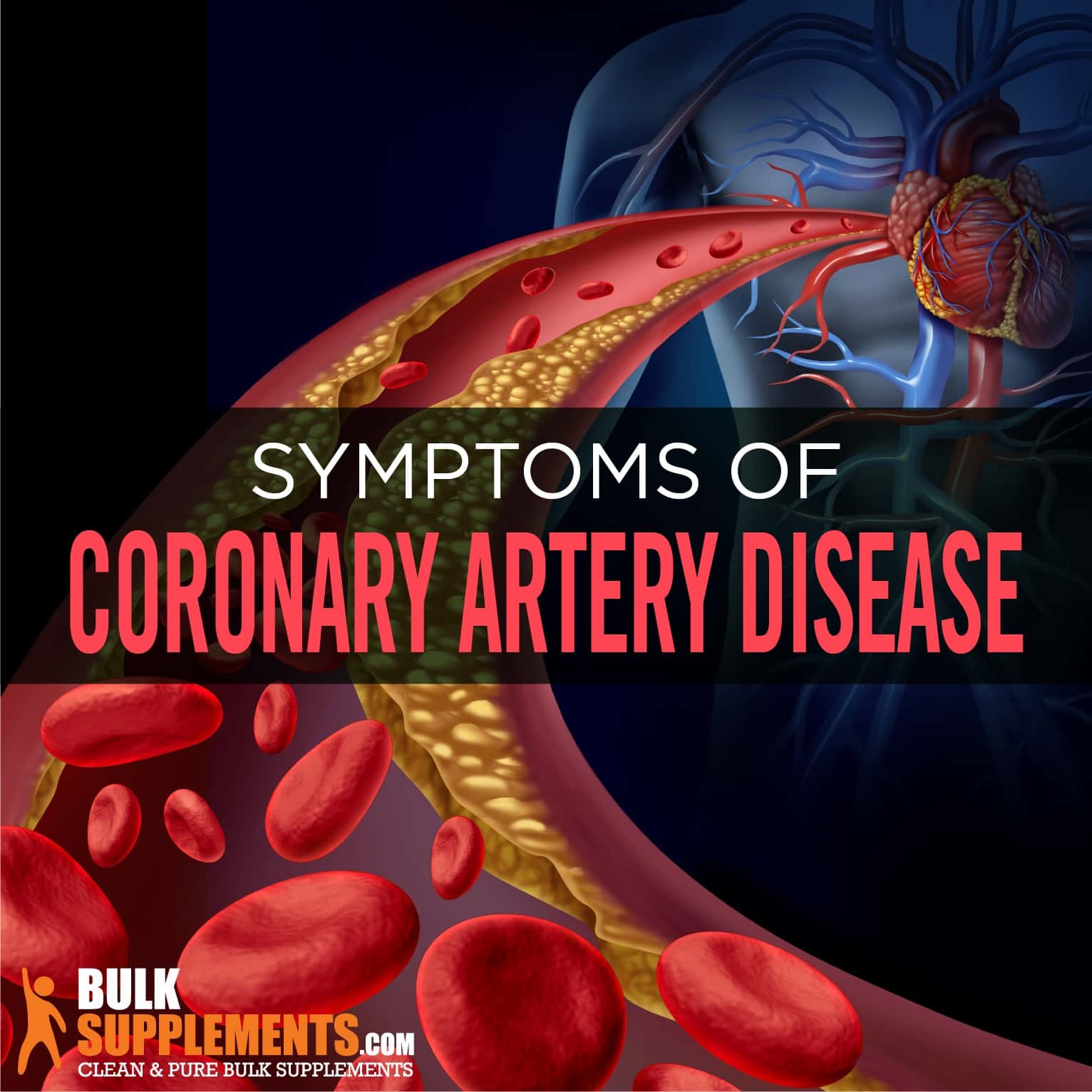Premenstrual Dysphoric Disorder (PMDD): Symptoms, Causes & Treatment
by James Denlinger Digital Marketing StrategistWhat is PMDD?
Premenstrual dysphoric disorder (PMDD) is a severe form of the more common premenstrual syndrome (PMS) that interferes with school, work and personal relationships and disrupts the lives of those impacted. It causes psychological changes during menstruation, including depression, anxiety and anger. There is also often a range of physical symptoms associated with PMDD including abdominal cramps, bloating, skin problems and headaches.
PMDD affects serotonin levels in the brain. Serotonin is a crucial neurotransmitter for mood regulation. Low levels can lead to moodiness, agitation and anxiety, as well as depression, all of which are symptoms of PMDD. In fact, studies show that up to 15 percent of women with the condition attempt suicide. That’s why it’s important to get treatment right away if you notice any severe physical or psychological changes related to menstruation.
PMDD Symptoms
PMDD features a wide range of symptoms. Not all women experience the same symptoms and they can differ in severity depending on the case and on the month. But in order to be diagnosed with PMDD, a woman must have experienced at least five symptoms, including at least one mood-related symptom for most of her cycles over the last year. These symptoms usually appear about a week before menstruation begins and lasts for a few days after it starts.
Physical PMDD Symptoms
Fatigue
PMDD alters hormone levels in the body, which can affect energy levels and cause fatigue. PMS also causes extreme fatigue, but the tiredness is even more extreme with PMDD and it’s often accompanied by other mood symptoms, such as depression and anxiety. A study showed that women with PMDD do not respond as well to melatonin, which regulates the sleep cycle, and mood symptoms may be related to sleep deprivation.
Headache
Headaches are a common symptom of PMDD. Research reports that 7 to 14 percent of women only have migraine headaches before or during their menstrual cycles and 52 to 70 percent notice more headaches before or during this time.
Skin Problems
PMDD can cause a variety of skin problems, such as redness, acne and irritated, itchy or swollen skin. PMDD can also irritate already existing skin conditions, such as eczema or cold sores, causing worsened symptoms the week before menstruation begins.
Other physical symptoms include:
- Hot flashes
- Backache
- Dizziness
- Bloating
- Low libido
- Breast pain
- Appetite changes
Psychological PMDD Symptoms
PMDD can cause a wide range of psychological or mood-related symptoms. Like the physical symptoms, these tend to appear a few days before the onset of menstruation as well, lasting until it begins. Mood swings are commonly associated with menstrual cycles and PMS, but the mood-related symptoms in women with PMDD are much worse, disrupting daily activities and social relationships.
- Irritability
- Depression
- Anxiety
- Trouble sleeping
- Anger
- Trouble concentrating
- Emotional sensitivity
- Negative self image
 PIN IT
PIN ITCauses & Risk Factors for PMDD
PMDD has strong links to hormonal changes in menstruation. Women with PMDD may just respond negatively or abnormally to the normal hormones in their bodies that increase during menstruation. Sometimes PMDD can result from hormone imbalances, but usually women with the condition have normal hormone levels.
Estrogen
Estrogen is one of the main hormones involved in menstruation and levels rise and fall throughout a woman’s cycle. Changes in estrogen influence mood, including irritability and anxiety, but researchers do not know exactly why or how. PMDD is a response to estrogen and research confirms that some women have a biological sensitivity to it, resulting in PMDD.
Progesterone
Progesterone plays an important role in reproduction. Levels fall when bleeding begins in menstruation, which is usually when PMDD symptoms occur. Women with PMDD are more sensitive to progesterone, which stimulates emotional activity in the brain. One study experimented with estrogen and progesterone levels, turning them off and adding them back into the body to trigger PMDD symptoms, confirming hormone sensitivity.
Serotonin
Menstrual hormone changes can affect serotonin levels in the brain. Serotonin is a neurotransmitter that regulates mood, and sudden drops can cause depression, anxiety and other mood disorders. Studies have concluded that serotonin is the most plausible cause for changes in gonadal hormones.
Genetics
Women with a family history of PMDD may be more at risk of developing the condition themselves. Twins studies have shown a genetic trend in PMDD, with more than 1,000 twins showing 56 percent heritability and 44 percent heritability in another sample size of 720.
PMDD Treatment
There are a wide range of treatment options to alleviate PMDD symptoms, including medications, hormone therapy and natural remedies.
Selective Serotonin Reuptake Inhibitors (SSRIs)
SSRIs are the most common treatment option for depression. They increase serotonin levels in the brain, which can improve mood and reduce depression symptoms. Women don’t always have to take them every day and can opt to only take them after ovulation until menstruation starts.
Hormone Therapy
In some cases, doctors may recommend hormone therapy to interrupt abnormal signals in the circuit that regulates the reproductive cycle. Hormone therapy can improve many of the symptoms, but it is not always effective and there may also be noticeable side effects.
Birth Control
Contraception can be effective by shortening or eliminating menstruation. Occasionally, it may cause irregular bleeding, but it may also relieve PMDD symptoms.
Lifestyle Changes
Many doctors will also recommend lifestyle and diet changes. Although these changes may not fully alleviate the full range of PMDD symptoms, they can improve energy levels and boost mood. Increased exercise and smaller, more frequent meals low in caffeine, sugar and alcohol may help women with PMDD.
Natural Remedies
In addition to standard treatment options, there are a number of natural remedies for PMDD. They are unlikely to fully treat the condition, but they may offer relief for some of the symptoms. Inositol powder is an alternative to SSRIs and studies have shown that it is effective for treating depression related to PMDD. Essential oils can help relieve some of the symptoms as well. Lavender can relieve headaches and help regulate sleep and peppermint oil and eucalyptus oil can help with relaxation.
Other natural remedies include magnesium and calcium. Magnesium may relieve bloating and reduce breast tenderness. Calcium is effective for improving mood, lowering fatigue and reducing the risk of depression.
Supplements for PMDD
There are a range of effective supplements to treat PMDD symptoms when they are paired with other forms of treatment.
Inositol Powder
PMDD affects serotonin levels, causing a wide variety of mood-related symptoms. Inositol is a molecule that plays an important role in serotonin transmission and research has shown that it may improve mood symptoms in people with PMDD. One study showed that women with PMDD who took 2 gm of inositol per day showed significant reductions in depression, as well as improvements in quality of life. The recommended dosage is 500 mg twice a day.
Alfalfa Extract Powder
Alfalfa is a plant that contains a wide range of nutrients. It’s also rich in phytoestrogen, compounds that are similar to estrogen. This may make alfalfa extract useful for people who have PMDD. The recommended dosage is 1,200 mg up to three times per day.
Astragalus Extract Powder
Women with PMDD may experience hot flashes related to hormone changes. This can also cause night sweats, disturbed sleep and anxiety. Astragalus is an herbal supplement that may increase energy levels and reduce fatigue.
Bilberry Extract Powder
Bilberry is used to treat a wide range of conditions, including menstrual pain. It’s an anti inflammatory that may help reduce cramping and bloating, as well as prevent constipation.
Biotin 1%
One of the B vitamins, biotin is commonly used to improve nail and hair health. Many women with PMDD experience hair loss from stress and hormonal changes. Biotin improves hair health and may reduce hair loss from PMDD.
Black Cohosh Extract Powder
Black cohosh is traditionally used to treat symptoms related to PMS. A study found that it relieved menstrual cramps as well as psychological symptoms and hot flashes. It also has inflammatory properties to relieve bloating.
The Bottom Line
PMDD is a severe condition that impacts a woman’s ability to work, exercise and maintain healthy relationships. Symptoms can vary widely depending on the case. With many women, PMDD causes depression, anxiety, irritability and sudden mood changes. It may also cause a range of physical symptoms, including skin problems, headaches, bloating, cramping and nausea.
Doctors do not completely understand the causes of PMDD, but it is linked to sensitivity to hormones that fluctuate naturally during the menstrual cycle. Women can manage the symptoms with SSRIs, birth control and hormone therapy. Natural remedies are also effective, such as essential oils, dietary changes and supplements.
Sponsor Ads
Created on Mar 20th 2020 10:09. Viewed 234 times.




